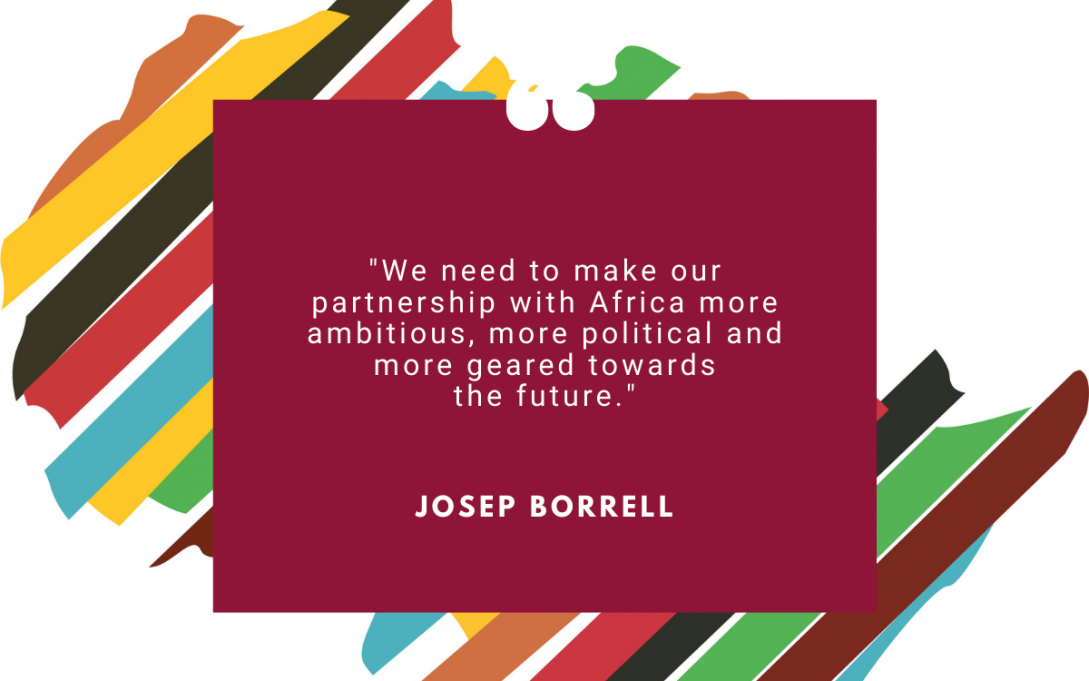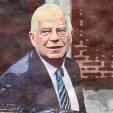Demonstrating Europe’s commitment to Africa

Upon arrival, we participated in the hand-over of coronavirus testing kits to the African Union Centre for Disease Control. We delivered 7,5 tons of essential medical and humanitarian equipment and 900,000 coronavirus kits that will be distributed on the entire continent. We met with Moussa Faki, Chairperson of the African Union, Smaïl Chergui, AU Commissioner for Peace and Security and with Ethiopian President Sahle-Work Zewde, Prime Minister Abiy Ahmed, and Minister of Foreign Affairs Gedu Andargachew.
Support for a strong, democratic and diverse Ethiopia.
Abiy Ahmed has recently written in The Economist that his vision is to build an "inclusive, multinational, democratic and prosperous Ethiopia" and to "reject the dangerous demagogues who argue that we cannot be our ethnicity - Oromo, Amhara, Somali, Tigrayan, Sidama - and be an Ethiopian at the same time". After first moves that were widely celebrated, his ambitious reforms and internal pacification efforts remain a work in progress. He was awarded a Nobel Prize and without question, his abilities to seek agreement will be needed to address the growing unrest in the various regions of Ethiopia. Commissioner Janez Lenarčič and I reiterated the EU's support for a strong, unified, democratic and diverse Ethiopia.
Being the second most populous country in Africa after Nigeria with more than 100 million citizens, its regional leadership gives Ethiopia an advantage to attract foreign investment and to pool resources for ambitious investments in skills and infrastructure. The EU's development cooperation with Ethiopia is one of the largest in the world with €815 million for the period 2014-2020. Ethiopia is also one of the major beneficiaries of the EU Emergency Trust Fund for Africa with over €271.5 million for 2015-2019. Last December, President von der Leyen and Commissioner for International Partnerships Jutta Urpilainen, agreed to an additional package of €170 million.
Ethiopia faces a very significant crisis caused by migration and internal displacement, which the pandemic has worsened. Together with Commissioner Lenarčič we visited two centres that provide assistance.
Ethiopia faces a very significant crisis caused by migration and internal displacement, which the pandemic has worsened. An estimated 3.2 million people are either internally displaced people (IDPs) or returnees. About 1.7 million are conflict-related IDPs and 600.000 drought-related. About one million are people forced to return from abroad. Together with Commissioner Lenarčič we visited two centres that provide assistance.
In Addis Ababa, we visited a centre run by the International Organization for Migration that provides shelter to Ethiopian migrants that have returned, mainly from Yemen and Saudi Arabia. A 12 year-old girl told us her story: her stepfather had kicked her out of her home and she had walked all the way through Yemen until Saudi Arabia. After just a few days of work in domestic service, she was arrested when she left the house to put out the garbage. She was then put in a detention centre and sent back to Ethiopia.
The personal experiences that we heard portray the hardship in the daily life of millions, which are impossible to convey with words.
In the Somali region, we also visited the Qoloji camp, which hosts 80.000 internally displaced people. It is a massive settlement that offers extremely basic living conditions and medical assistance. Many people stay for years and children get only four years of schooling. The personal experiences that we heard portray the hardship in the daily life of millions, which are impossible to convey with words.
Ethiopia, which hosts around one million refugees and migrants from neighbouring countries, shows how migration is a crucial issue of our time. It shows how solidarity to welcome those in need should be at the core of our actions. It also demonstrates that our actions should combine immediate assistance with longer-term projects that address the root causes of migration. This approach has been at the heart of the EU Trust Fund for Africa that has mobilised almost € 5 billion since its creation five years ago.
Mustafa Mohumed Omar, President of the Ethiopia Somali Region gave us a vivid account of the importance of local leaders that face the realities on the ground. Ultimately, they are the ones with the responsibility to create a narrative that puts collaboration ahead of grievances and common interests ahead of differences.
Ethiopia can maximize the benefits of our long-standing commitment with a clear and ambitious project sharing both benefits and risks between the federal and regional governments
Ethiopia can maximize the benefits of our long-standing commitment with a clear and ambitious common project sharing both benefits and risks between the federal and regional governments. Providing a fair and predictable business environment for the many foreign investors that provide employment and access to international markets is an important lever for the country's development. It should not be affected by domestic political disputes.
Stepping up our partnership with the African Union
We also met Moussa Faki, Chairperson of the African Union and Smaïl Chergui, AU Commissioner for Peace and Security. The AU and the EU share a common interest to address both global challenges and local conflicts. The elections in Guinée, Côte d'Ivoire and Central African Republic, the consolidation of the transitions in Ethiopia and Sudan, and the situations in Somalia and Libya deserve the close collaboration between our two institutions. As I have often highlighted since the beginning of my mandate, our partnership with Africa is a centrepiece of our foreign policy and of our vision to develop a fair and sustainable planet.
This was also the main message I delivered on Wednesday 14 October at the Africa Week organised by the Group of Socialists and Democrats in the European Parliament.
At the European Council, EU leaders are set to underline their commitment to make the partnership more ambitious, more political and more geared towards the future.
The week’s European Council with also discuss how to take Europe partnership with Africa to the next level. Regrettably, I will not be able to participate in this debate, as I am still self-isolating as a precautionary measure, in line with public health measures. I am sure that EU leaders will send a collective message of their commitment to make the partnership more ambitious, more political and more geared towards the future. Having had to postpone the EU-AU Summit due to the pandemic, we should now use the extra time we have, to accelerate preparations and identify concrete deliverables. For my part, I hope to go back to Africa next month, if COVID-19 restrictions permit, to keep working on this relationship, as one of my top priorities.
MORE FROM THE BLOG

“A Window on the World” – by HR/VP Josep Borrell
Blog by Josep Borrell on his activities and European foreign policy. You can also find here interviews, op-eds, selected speeches and videos.
